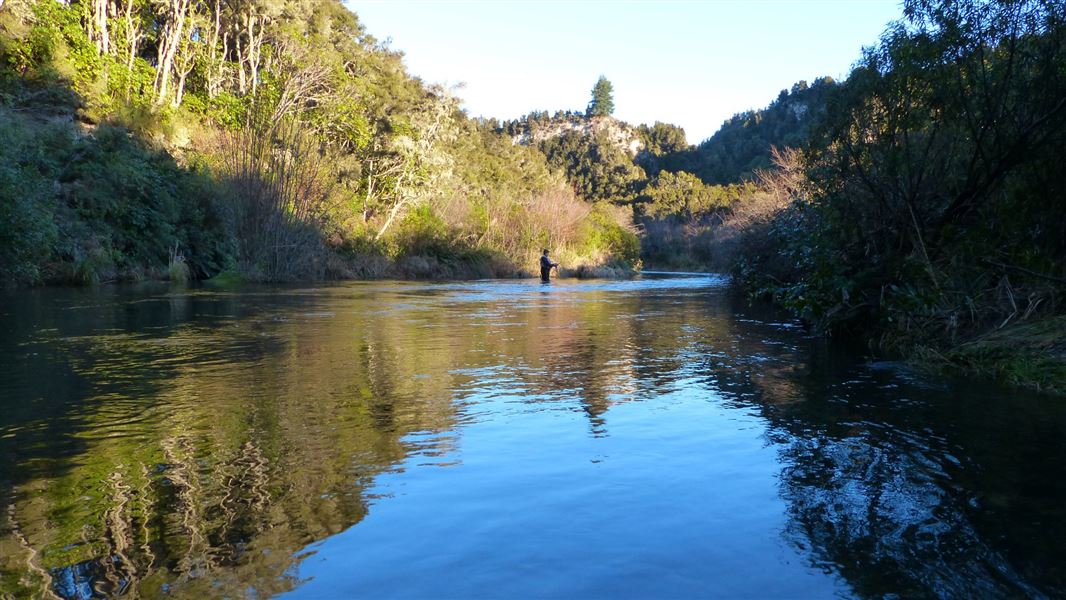
Introduction
A very scenic and stable river which offers excellent fly fishing throughout its length. Flow is moderated by a power scheme which means the river can be fishable even after periods of rain.Fishing seasons: lower reaches: 1 July to 30 June; mid-upper reaches - 1 December to 31 May
The Hinemaiaia River drains the Hinemaiaia 1B lake, which forms part of a hydro power generation scheme. For this reason, river flows are stable and clear even after prolonged rain. The river valley is cloaked with regenerating native bush, and local community pest control efforts are protecting an increasing population of native birds, which further enhance the surroundings.
The small size of this river, combined with its reputation for snags, means accurate casting can be a real bonus. It fishes well for large spawning rainbows in the winter and can provide enjoyable dry fly fishing in the summer.
Access
Angler access is readily available from a series of parking areas that link to established riverside tracks. The mouth and lower river are readily accessible from SH1 at Hatepe. The middle sections can be accessed by driving upstream from SH1 along the access road to the Hinemaiaia dam, where the car parks and tracks are easily found.
Techniques
Being a small river the Hinemaiaia can be fished with lighter tackle, but keeping large fish out of snags often necessitates using heavier tackle. Therefore, anglers will often choose to use 8 weight gear particularly in early winter when larger rainbows can be anticipated. Nymphing is the most popular technique used on the river, although it can also fish very well on the dry fly in summer.
Despite its small size, wet fly fishing can be deadly on this river, as it allows anglers to place flies in places other techniques struggle to reach.
Check in with a local tackle shop for the latest advice.
Hazards to what for
- River flow is moderated by hydro power generation, but there can be surges as the dam overflows after prolonged heavy rain.
- River mouth has changeable pumice drop-off.
- Tracks have high river banks in places and steep steps.